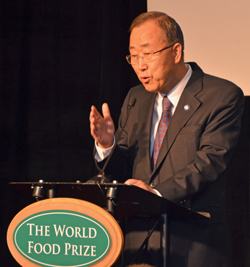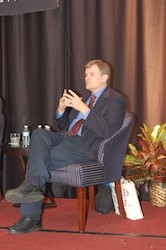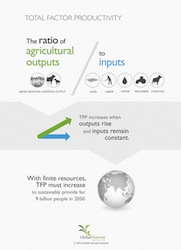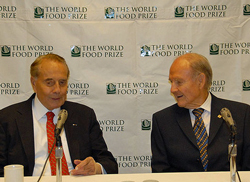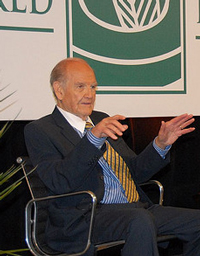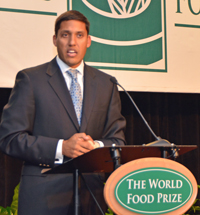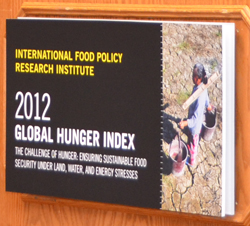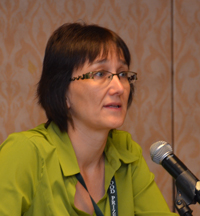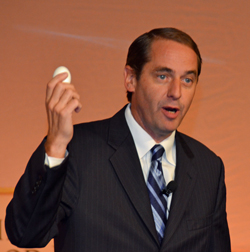 At the closing day for the World Food Prize symposium Friday, Elanco President Jeff Simmons shared his thoughts on the significance of a single egg.
At the closing day for the World Food Prize symposium Friday, Elanco President Jeff Simmons shared his thoughts on the significance of a single egg.
“What’s in an egg?” Simmons asked during comments before a panel discussion on the importance of food productivity to meet tomorrow’s demand. “It’s the calories, the nutrients, the nutrition to totally change a kid. One a day – that’s all we need.”
Jeff talked about how the production of eggs is not at a level that can address the demands of a growing population and in fact is actually declining. “There are less eggs per person than there were a year ago – we are going backwards in eggs,” Jeff explained, noting that there are currently 6.5 billion hens in the world producing about 174 eggs and the current trend is losing an egg per hen per day. He adds that the reasons for the negative trend can be attributed to disease, lack of innovation, and misguided animal welfare policies.
Giving closing comments at the end of the panel, Jeff encouraged those who attended to take home this message. “Don’t leave the World Food Prize 2012 without getting out of your bubble,” he said.
Listen to Jeff’s opening and closing comments here: Elanco's Jeff Simmons World Food Prize address
 Jeff is a very well paid corporate executive, but he is so passionate about this topic he is not just talking about it, he is living it and “getting out of his bubble.” He and his family, which includes six children between the ages of 7 and 16, are doing a month long “hunger challenge.” This first week, the family ate nothing but rice and beans all week. Next week, they will live on a “food stamp diet” of $4.16 per person – for the whole week. “The hunger inside of you is the solution to the hunger outside in the world,” Jeff said.
Jeff is a very well paid corporate executive, but he is so passionate about this topic he is not just talking about it, he is living it and “getting out of his bubble.” He and his family, which includes six children between the ages of 7 and 16, are doing a month long “hunger challenge.” This first week, the family ate nothing but rice and beans all week. Next week, they will live on a “food stamp diet” of $4.16 per person – for the whole week. “The hunger inside of you is the solution to the hunger outside in the world,” Jeff said.
You can follow the egg story and Jeff’s hunger challenge in his own family by following him on Twitter – @JeffSimmons2050. He says 2050 is a key time. “We’re going to have this food security – safe, abundant, affordable food – solved by then,” Jeff said. “We have to, we will and American agriculture will lead the way.”
Elanco’s blog about feeding a hungry planet, PlentyToThinkAbout.org, is also now on Twitter – @plntytothinkabt.
Listen to my interview with Jeff here: Jeff Simmons interview
View the World Food Prize Photo Album here.
 Young agvocates will get some social media training at the 2012 FFA Convention. I’ll be some of them could teach the teachers! What do you think?
Young agvocates will get some social media training at the 2012 FFA Convention. I’ll be some of them could teach the teachers! What do you think?




